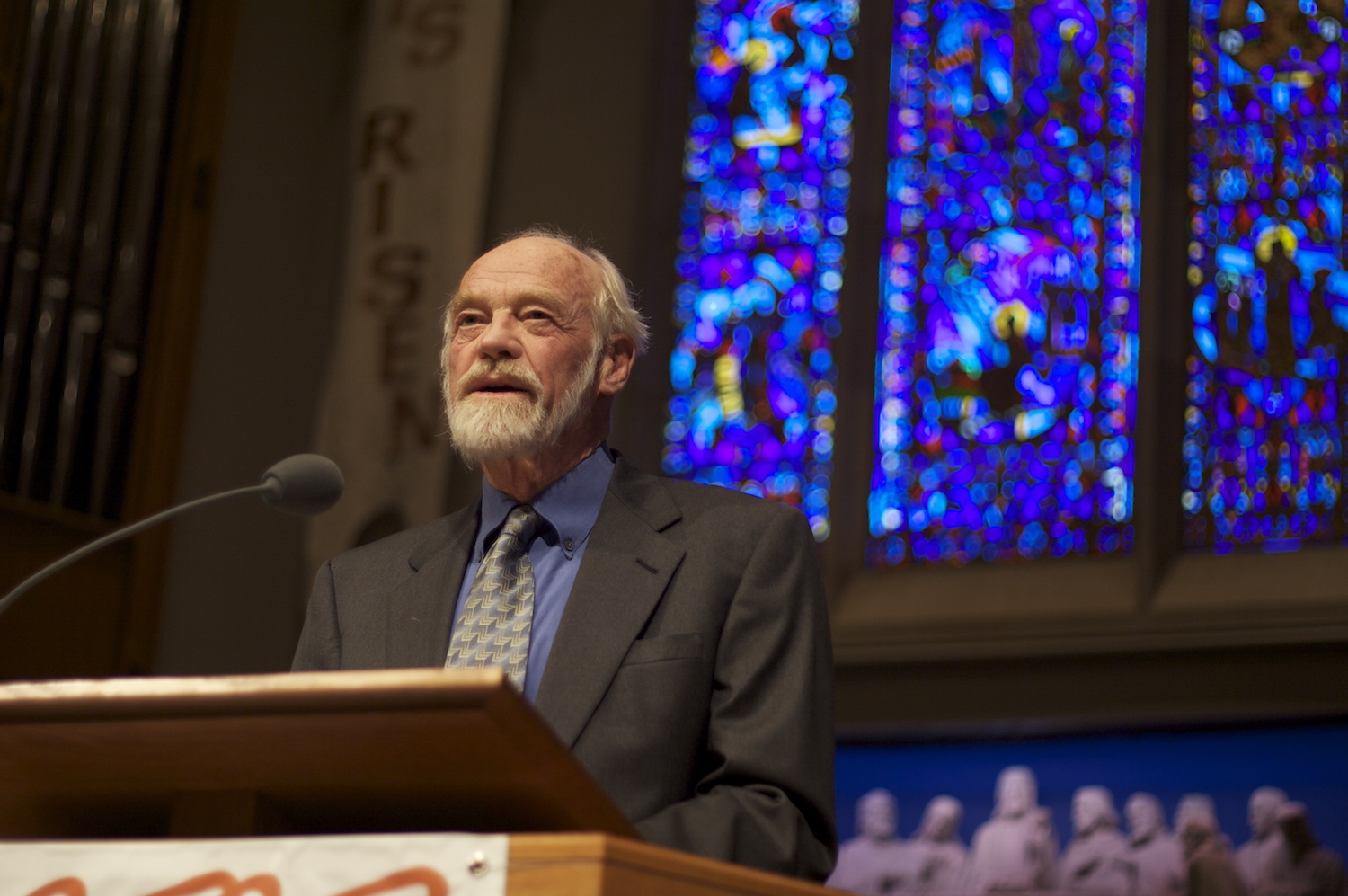
UPDATE: Since we published this post, Eugene Petersen has gone on record retracting his former statement. You can read what he says here.
In a recent interview, Eugene Petersen, a prominent Christian author and creator of The Message Bible translation appears to affirm same-sex marriage. He is the latest in a long line of leaders who have done a U-turn on this issue. Here is what he said:
"I wouldn’t have said this 20 years ago, but now I know a lot of people who are gay and lesbian and they seem to have as good a spiritual life as I do. I think that kind of debate about lesbians and gays might be over. People who disapprove of it, they’ll probably just go to another church. So we’re in a transition and I think it’s a transition for the best, for the good. I don’t think it’s something that you can parade, but it’s not a right or wrong thing as far as I’m concerned."
When asked if he would now perform a same-sex wedding ceremony, he simply replied: “yes”.
Peterson expresses what is perhaps the most powerful argument for changing our minds on this issue: when you actually meet and spend time with gay people, you find that they are often kind, loving, caring individuals with a good quality to their relationships. It seems like a self-evident argument that puts anyone disagreeing into the category of “homophobic bigot”.
Tim Keller makes this telling comment on the issue of people changing their minds because they have met nice gay people in a book review recently:
"When I see people discarding their older beliefs that homosexuality is sinful after engaging with loving, wise, gay people, I’m inclined to agree that those earlier views were likely defective. In fact, they must have been essentially a form of bigotry. They could not have been based on theological or ethical principles, or on an understanding of historical biblical teaching. They must have been grounded instead on a stereotype of gay people as worse sinners than others (which is itself a shallow theology of sin). So I say good riddance to bigotry. However, the reality of bigotry cannot itself prove that the Bible never forbids homosexuality. We have to look to the text to determine that."
John Stott makes this masterful observation in his book Same Sex Relationships:
"We should not deny that homosexual relationships can be loving. But the love quality of same-sex sexual relationships is not sufficient to justify them. Indeed, I have to add that in a sense they are incompatible with true love, because they are incompatible with God’s law. Love is concerned for the highest welfare of the beloved. And our highest human welfare is found in obedience to God’s law and purpose, not in revolt against them."
"our highest human welfare is found in obedience to God’s law and purpose, not in revolt against them.
Sam Allberry makes this observation in his book Is God Anti-Gay:
"As Western culture becomes ever more approving of homosexuality it is going to feel more and more as though we Christians are failing in our attempts to commend a Christian view of sexuality. But … this is no time for pessimism, and as society moves further and further away from its Christian moorings, the church is given more and more of an opportunity to model a counter-cultural alternative. Key to our witness and credibility on this (or any) issue is the quality of our life together, and the clarity of our message. We need to be clear on the gospel. Clear that it is good news for everyone. That no one is too far gone to enjoy it, or too complete to need it. We need to be clear not just that we are all sinners, but that we are all sexual sinners. None of us is coming at this from any position of superiority."
"We need to be clear not just that we are all sinners, but that we are all sexual sinners."
In concluding his book, John Stott sums up the good news that we have to offer everyone—no matter what their sexual orientation:
"Perplexing and painful as the homosexual Christian’s dilemma is, Jesus Christ offers him or her—indeed, all of us—faith, hope and love: the faith to accept both his standards and his grace to maintain them, the hope to look beyond present suffering to future glory, and the love to care for and support one another. “But the greatest of these is love” (1 Corinthians 13:13). "
Image credit: Clappstar